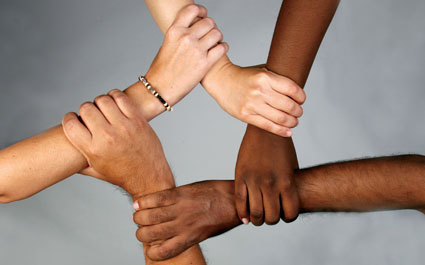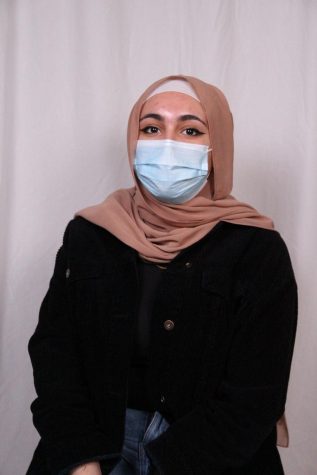Are POC Really United?

Courtesy of Google Images
As Black History Month comes to a wrap, an issue that not many seem to be bring up is minority unity. People of color, POC’s, claim that there is unity, but there are many instances in which POC’s are extremely tense with each other.
Minority groups are beginning to face more issues than what they’re used to, leading a lot of POC’s to protest and fight for their beliefs. However, there are instances in which each POC keeps to themselves and are quite tense with other people of color. Senior, Yoshwa Kyei, acknowledges the fact that there is a lot of racism within minority groups due internal issues.
“I believe that we do have a lot of internalized racism towards ourselves and other people of color, especially if we live in a primarily white community. It’s this way because of the world we live in. Despite the push to educate and spread awareness these feelings have historically passed on from generation to generation because of what we as a minority community have learned from generations before us,” stated Kyei.
There are many possible factors that could contribute to racism in POC communities. There are a few major ones like internal racism, stereotypes and colorism. Junior, Yashal Paracha, believes that colorism does affect the racism within POC communities. Colorism is the concept that the lightness or darkness of one’s skin will affect how their own people will view them.
“I do think that colorism severely contributes to racism because in South Asian culture, we’ve normalized that having a darker complexion is not acceptable and for you to ‘fix it’, you should do face masks to lighten your skin. I think that we need to change the mindset that we’ve grown up in,” stated Paracha.
Unity within minority groups tends to be an issue because people have their own ideologies when it comes to dealing with others in other communities. There tends to be animosity due to the fact that every minority is different even if unity is needed. Sophomore, Vanessa Lam, believes that minorities are not united due to their own reasons.
“I believe that Minorities are not united usually. A lot of minorities don’t contribute to certain things due to personal reasons. Although, if the situation is serious and is damaging their community, they will likely unite,” stated Lam.
Despite there being people who believe that minorities aren’t united. Paracha believes that minorities are united because of the understanding of issues they all undergo, causing them to rely on each other. Being able to rely on each other for issues regarding their rights is something that a lot of people believe should cause unity.
“I think most minorities are united in our generation because we are more aware of the racism and white privilege that we have to view daily. Through that, we are able to stand together and be strong,” stated Paracha.
In order to get unity, there needs to be changes that will allow people to genuinely view each other as equal. Senior, Savannah Williams, feels like if POC’s were to actually unite over the bigger issues, there would actually be unity between them. A lot of people believe that it will definitely take time and effort to be able to strengthen their feelings toward each other.
“I feel like we just need to show the problems that all POC communities have to go through, or just enough for people to just humanize each other. We’ll be able to acknowledge that we’re all mistreated in some way and we’ll want to help each other out with our issues. I just feel like we have to take a bigger issue and people will start to address the smaller issues that don’t necessarily have to do with their own community,” stated Williams.
Unity within people of color communities seems to get better as the years go by as they begin to work on their issues step by step. There are many issues that occur within each community, and educating others on those issues will change how people deal with each other for the better.

